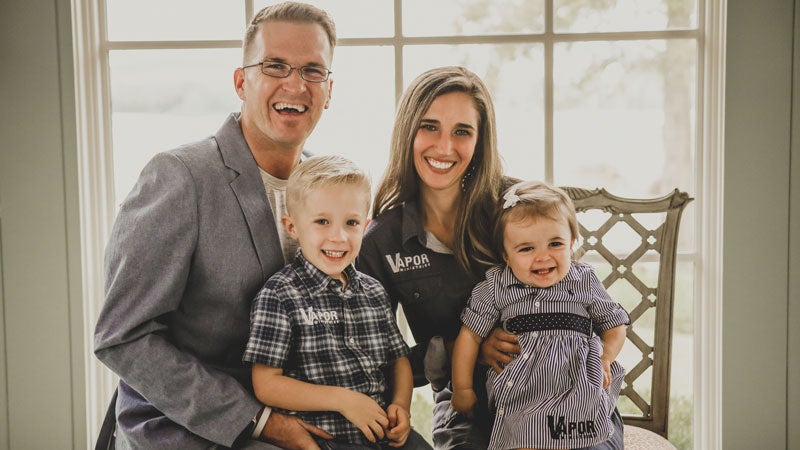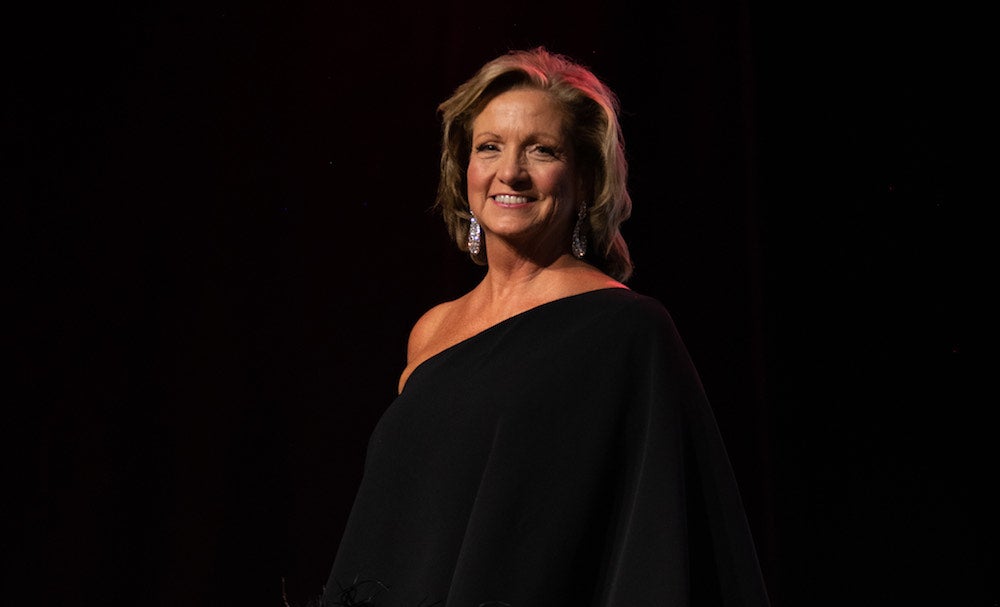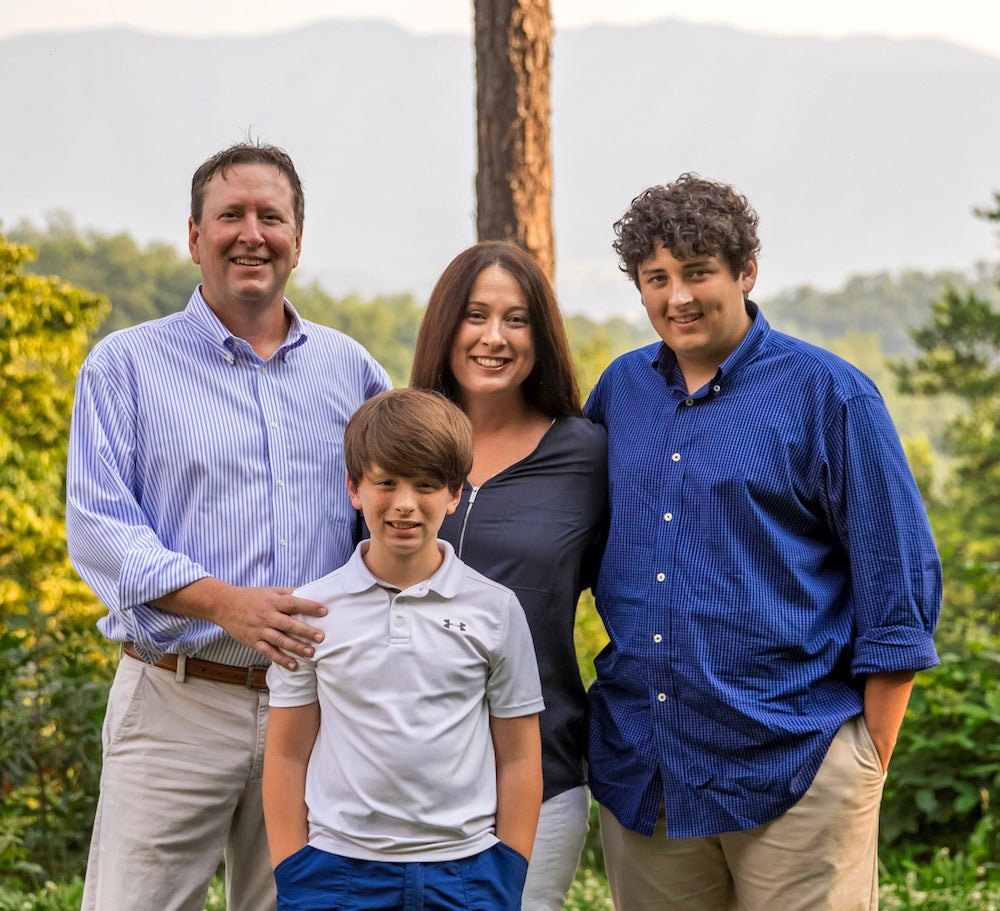This isn’t the life Micah McElveen was supposed to have. It’s not the one he dreamed of as a 14-year-old multi-sport jock surfer, diving into a wave to paddle out and hang 10.
There was a storm coming, and Micah, having grown up on the west coast surfing in San Diego, knew better than to miss an opportunity to surf in the Gulf of Mexico, a body of water so lacking in dependable waves that it often looks more like a lake. But on this day in October of 1995, Hurricane Opal was skirting past the Florida peninsula, making big waves for the beaches near his home in Englewood.
His parents dropped him and his brother off and went back to park the car. Micah grabbed his board, and running into the water, dove headfirst into the base of a wave. That’s how you do it — the duck dive. Otherwise, the wave knocks you down. You duck dive through the bottom of the wave and pop up on the other side and start paddling out to the better waves. Only this time, something went wrong. Micah slammed headfirst into a sandbar.
He knew immediately that something was wrong. A shock hit his spine. He remembers being groggy and confused. The next wave rolled him over onto his back, and he could see the surface. But when he tried to get up, his body wouldn’t work.
“Panic raced through my veins. I’m underwater and try. (But) there’s nothing I could do. I can’t get up. In a last-ditch effort—you know my lungs are crying out for breath—I put my lips together and I try to get air,” he says, reliving that terrible moment. But his lips remained underwater. They couldn’t reach up to the air. “I sucked in water and I passed out.”
To make matters worse, his brother didn’t see it. He’d gone back to get a football, and when he came back to the shore and couldn’t find Micah, he assumed Micah was playing a joke on him and hiding in some bushes. By the time his parents arrived, Micah’s brother was frantic. They estimate 5 to 7 minutes passed before a stranger 150 yards down the beach found him in a slack pool of water, floating face down. His parents saw the stranger pick up his hand and watched as it fell, seemingly lifeless, back into the water.
They started CPR immediately and then the ambulance arrived, used a defibrillator and airlifted him to Tampa. He doesn’t remember much about that first week, but when he woke up, choking on the tubes in his nose and throat and saw his father sitting in the corner, Micah asked, “How did I do in the game?” But there had been no big football game, not for Micah. And there never would be.
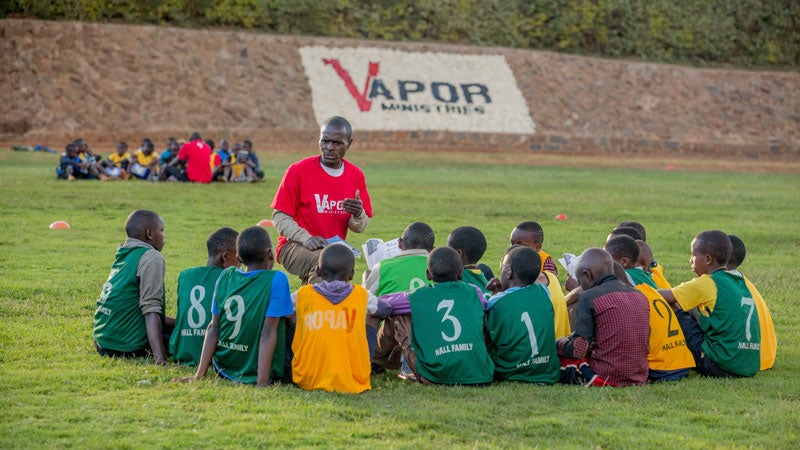 Paralyzed
Paralyzed
Micah had shattered four vertebrae in his neck and was a total quadriplegic, fighting for his life. He couldn’t even breathe on his own. He could move his mouth and eyes, and that was it. At 14, in the prime of his athletic abilities, he was beyond devastated. It wasn’t JUST the loss of sports, but he was in pain. A LOT of pain. His damaged nerves felt like they were on fire. “I was like, ‘I am in intense pain. I am literally trapped in this prison of a body.’ I thought, ‘If this is life I don’t want to live it.’”
In the weeks to come Micah had dreams. Dreams where he would actually die. Not like those dreams where you’re falling and before you hit the ground you wake up. Micah dreamed he was shot, electrocuted, in a plane crash, and every time he dreamed it all the way through, felt himself floating above, seeing his body below him. He remembers feeling euphoric. “I kept saying, ‘Thank you, Jesus, thank you God.”
And then he would wake up, still alive, and cry, “Dear God, no! No, no, no, no!” Being alive had become his nightmare.
That’s when he says his relationship with God came into play. He was under such emotional and physical pain he would cry and call out to God. It was at those times he says he felt God’s presence and the sense that although things weren’t fixed, he wasn’t alone. It pushed him into a deeper pursuit of his faith.
Looking back, Micah says, “My big deal was sports. That was my idol. It had taken the number one place in my heart over my relationship with Christ.” But not for any longer. He says he realized, like the Bible says, a person’s life is like a vapor that appears for a brief time and then is gone. And he started to realize he wanted to leave something behind.
Micah spent the rest of his high school years in hospitals and physical rehabilitation. He went from being among the most popular kid in school, to the kid he says no one wanted to hang out with. But he worked hard. And eventually he regained partial use of his arms and legs. He got back about 85 percent of his lower body, 30 percent of his left arm and 40 to 45 percent of his right arm. It wasn’t enough to be that professional athlete, but he says it was enough to do life. And he wanted to do more of life than before. He had begun to feel that maybe his tragedy could be used for good.
He enrolled in a Christian college in Missouri and even managed to make the soccer team. “I worked really hard,” he says, underestimating the kind of strength that must have required. “I can’t throw the ball in and I run a little bit funny,” he says, but he made that team and even ended up being captain by his last year.
Along the way his soccer team and the church he was attending became involved in outreach in the impoverished and drug-ridden neighborhoods near campus. He started connecting with kids, lavishing them with attention and talking about making good choices. The kids loved soccer, so they listened to him and his teammates.
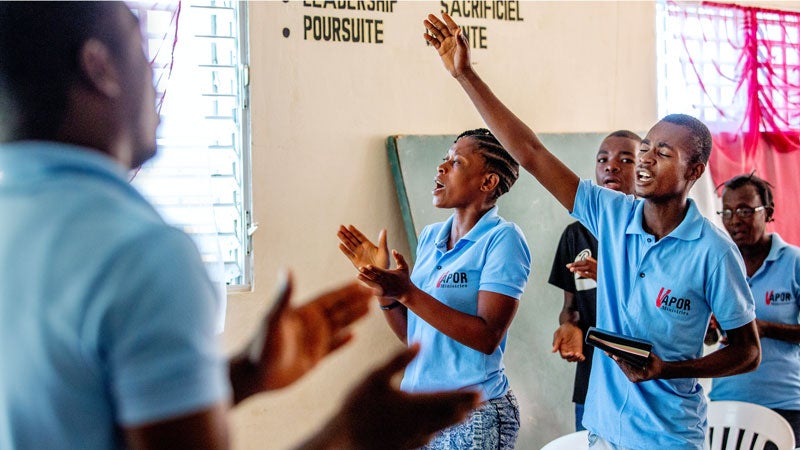 Motivated
Motivated
”And that’s when the lights came on for me,” Micah says. “Ministry isn’t necessarily trying to get people to go to a church, which they may never want to do. It’s entering peoples’ lives where they’re at.”
After witnessing poverty there in Missouri, he began to think about global poverty. He’d learned that at the time, 1.3 billion people lived on less than $1.25 a day. He arranged to stay with a missionary family in Nairobi, Kenya, and spent his Christmas break there. He visited the slums and got to know people, sometimes spending the night with those he’d grown close to.
The statistics of poverty became names and faces. He tried to wrap his brain around how a family of 12 lived in a one-room, 12-by-14-foot tin shack with a leaky roof and a dirt floor.
Having gone through his own trial, he thought maybe God had been preparing him for this. He knew how it felt to have no hope. And he knew how it felt to get it back.
When Christmas break was over, poverty had become personal to him. “It got under my skin,” he says. “I knew I was going to spend the rest of my life trying to forget what I saw, or spend the rest of my life trying to do something about it.”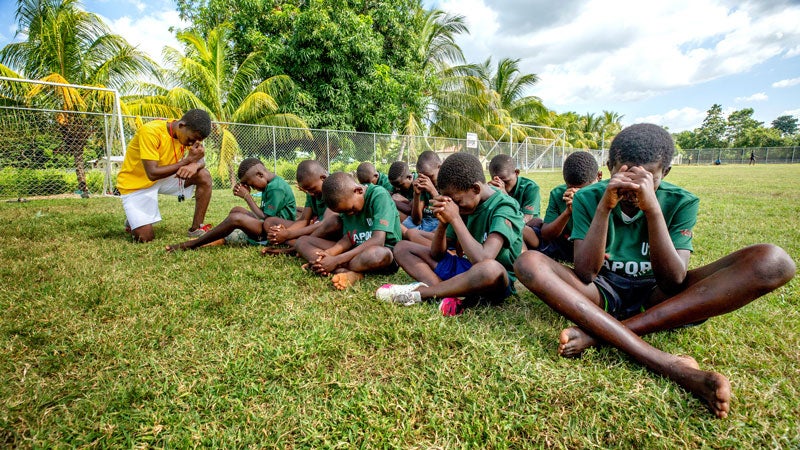
He dropped out of graduate school, moved into his car for eight months, came up with a plan, assembled a board, raised some funds and then moved back to Africa. “It was like a dream,” he says, like a divine blueprint entrusted to him. He stayed for a year, and in that time Vapor Ministries built a center that offered a multitude of services. There was a soccer program for kids, a well with clean water for residents, an education sponsorship program, disease prevention, and a program to get those who need medical intervention to a clinic. And, of course, a church to partner with.
Perhaps most amazingly, Micah figured out a way to do it with indigenous workers. “Locals built it, locals lead it, locals use it. Together, we fund it.”
When he left Kenya, Micah came back to the U.S., got married, and they lived in his wife’s car for another year, working to expand the program. All their earthly possessions were in their trunk, back seat or a storage container on top of the car.
Today, his Vapor Ministries has five operating centers: two in Kenya, one in Togo (West Africa) and two in Haiti. The operating costs are funded in part by the three thrift stores Vapor Ministries operates: one in Vestavia Hills on Highway 31, one in Greystone, and a wholesale center in Westover. The capital campaign—the funding arm for NEW centers—come from grants and major donors. And Micah wants to open many more centers. Right now, he says their programs serve hundreds of thousands, but he has plans to serve millions. 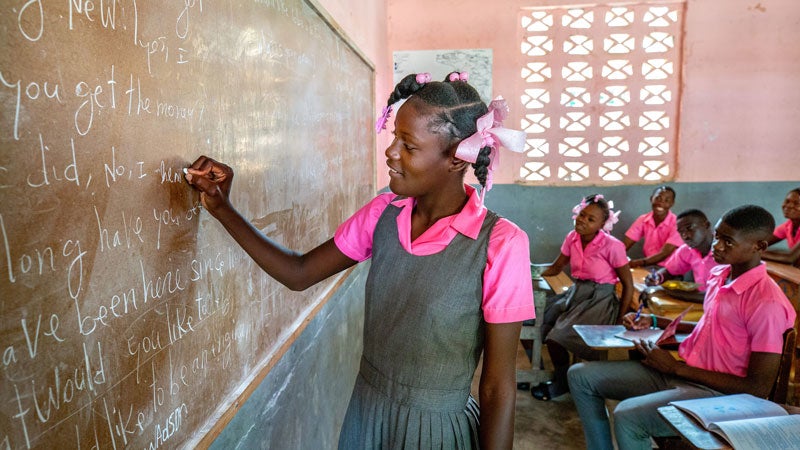
The View from Here
Had Micah not broken his neck 23 years ago, he thinks he would probably have become a professional athlete. “I would have been worldly successful by the world’s measures. And very miserable right now.”
For a long time that day on the beach was the worst day of his life. “It was something I mentally tried to, like (figure out) ‘How do we undo that? Can I go back?’”
Now, he says it’s one of the five best things to ever happen to him. “I wouldn’t wish it on anybody and I DEFINITELY don’t want to go through it again,” he says.
“As much good as it’s brought, I also (am) acutely aware of the pain and trial. It wasn’t easy, and I wouldn’t make light of it. At the same time, now that it’s happened, I would not change it. I would not undo it.”
Shop at Vapor
Proceeds from the Vapor Thrift Store, 1069 Montgomery Highway, fund the operating costs for Vapor Ministries for expenses from clean water for the community to educational scholarships, medical care, soccer leagues and food. You can shop or donate gently used items including accessories, books, clothing, cookware, decorative items, dishes, electronics, furniture, housewares, jewelry, linens, movies, music, shoes, suitcase and toys any time during operating hours.

